
Hydrolysis of Collagen: Does Hydrolyzed Collagen Give You More Benefits?
Hydrolysis of Collagen
You want to improve your health, but you're not sure which supplement is right for you.
Many people think that hydrolyzed collagen is the best form of collagen, but does it really give you more benefits?
In this article, I'll look into the science behind the hydrolysis of collagen and whether or not it's really better for you than other forms.
I learned about the power of hydrolyzed collagen after a friend tried it after years of joint pain and stiffness. She tried everything from painkillers to physical therapy, but nothing seemed to help..
Another friend recommended hydrolyzed collagen supplements. She decided it was worth a try and the results were amazing.
After just a 6 weeks her joints felt better and she wasn't in as much pain. It made me wonder what exactly hydrolyzed collagen is, and how else it can benefit health.

What is Hydrolysis?
Hydrolysis is a process in which a large molecule is broken down into smaller molecules through the addition of water.
In the case of collagen, this involves breaking down the protein into smaller peptides that can be easily absorbed by the body.
What is the Process of Collagen Hydrolysis?
The process of collagen hydrolysis involves treating regular collagen powder with enzymes that break it down into smaller peptides. The resulting hydrolyzed collagen is filtered and purified.
There are nearly 28 types of collagen, with collagen type I being the most common our bodies. This protein can be extracted from all sorts of places including:
- Bovine (cows)
- Porcine (pork)
- Chicken
- Fish or Marine Collagen
- Duck
- Rabbit
Below is a bit of the science on how collagen is made. You can skip it if it makes your brain hurt.
Acid and enzymatic treatments are used to extract collagen from these sources. Using both produces a more efficient extraction process (1).
Pre-treatment conditions, dialysis, and source of extraction are the main factors that affect the quality of the extracted collagen.
Still with me? Almost done.
When collagen is heated above 40°C, it changes its shape and breaks into smaller pieces.
This is hydrolyzed collagen (HC). Proteolytic enzymes like alcalase, papain, and pepsin can further break down HC into even smaller peptides.
The type and amount of enzymes used can affect the properties of HC, like its solubility and ability to act as an antioxidant or antimicrobial agent.
HC can also be made using chemical treatments with acidic or alkaline substances, but these methods are harsh and can produce a lot of salt in the final product.
Hydrolyzed Collagen vs Collagen Peptides
While hydrolyzed collagen and collagen peptides are often used interchangeably, there is a subtle difference.
Hydrolyzed collagen is broken down into smaller peptides through the process of hydrolysis, while collagen peptides are short chains of amino acids.

This, in theory, makes hydrolyzed collagen easier for the body to process. But some people claim that HC gives them side effects gut issues, bloating or cramping.
Hydrolyzed Collagen Health Benefits
Hydrolyzed collagen health benefits include better digestion, bone strength, reduced wrinkles, joint support, muscle building, weight loss and more.
Let's go through each of these below.
Easier to Digest
As I mentioned above, hydrolyzed collagen is easier to digest because it has been broken down into smaller proteins through the process of hydrolysis.
Smaller peptides are easier for the body to digest and absorb than large protein molecules.
You are also less likely to get allergic reactions, as your immune system is less likely to recognize these amino acids as foreign substances.
Also, HC has a lower molecular weight, which allows it to be absorbed more quickly and efficiently by the body.
Overall, hydrolyzed collagen is more digestible and absorbable compared to regular supplements or powders.
Looking for a supplement recommendation? Read my guide to finding the best collagen powder.
Stronger Bones
Hydrolyzed collagen increases your bone density and reduces your risk of fractures. One cool 2010 study looked into the preventive effects using deer velvet on osteoporosis in rats (2).
The study found that rats treated with antler collagen showed significant improvements in bone mineral density (BMD), calcium and phosphorus levels, histomorphometric indexes, and biomechanical properties, compared to the osteoporosis group.
Also, the level of serum alkaline phosphatase (ALP) was reduced in the antler collagen-treated groups.
In layman's terms, collagen hydrolysate may have a preventive and therapeutic effect on osteoporosis.
Another 2018 study looked at the effects of taking 5 grams of specific collagen peptides (SCP) daily for 12 months on bone mineral density (BMD) in postmenopausal women with bone issues.
The results showed that women who took SCP had a significant increase in bone mineral density compared to the control group who took a placebo.
In addition, levels of bone markers that indicate bone formation increased significantly in the group that took collagen peptides.
Levels of bone degradation markers increased significantly in the control group.
Take home point:
Taking 5 grams collagen daily can help increase bone formation and reduce bone degradation, ultimately leading to stronger bones.
May Reduce Wrinkles and Improve Skin Quality
Collagen can help to improve skin elasticity and reduce the appearance of wrinkles and fine lines when taken orally.
The funny thing is that dermatology and cosmetic brands are capitalizing on the trend and using it in their formulas.
The research on topical use is not great because it is poorly absorbed. But a new study from 2022 shows that there is some benefit to topical use of these peptides (4).

This review found 12 studies which showed that both oral and topical collagen supplements delay aging with no significant difference between the two.
Collagen can improve skin moisture, elasticity, and hydration when taken orally. It also reduces wrinkling and roughness of the skin.
Reduced Joint Pain
Hydrolyzed collagen can help to reduce joint pain and stiffness in those with osteoarthritis and improve joint function for people with injured joints.
One 2008 study investigated the effect of collagen powder on activity-related joint pain in physically active athletes without joint disease (5).
The research shows that collagen decreased joint pain in athletes. So if you are struggling with pain and want to try something new, consider collagen or bone broth.
Might Help You Lose Weight
Collagen and gelatin can make you feel full and reduce cravings, which can help you lose weight.
Although there is limited research on the direct link between collagen supplements and weight loss, a 2019 study suggest that collagen supplements may indirectly aid weight loss by the following (6):
- Increasing a sense of fullness
- Promoting muscle mass
- Reducing fat accumulation
This protein can increase your feeling of fullness, which reduces hunger and means that you will eat less calories throughout the day.
They also build muscle mass, which burns more calories at rest and increases overall calories burned. More on that below.
Finally, some new collagen research suggest that it may reduce the development and accumulation of fat cells and by helping to regulate lipid metabolism (7).
Can Increase Muscle Strength
Hydrolyzed collagen can help to increase muscle mass and strength, particularly in older adults. Are you going to build endless muscle and look like a Greek god? Probably not.
But one interesting study One study looked at whether collagen peptide supplements, which contain non-essential amino acids, could influence the protein makeup of skeletal muscle (8).

The study involved 25 young men who completed a 12-week resistance exercise training intervention while taking either collagen peptides or a placebo.
The collagen group had a greater increase in body mass and fat-free mass compared to the placebo group.
Crazy right? It is important keep this in perspective.
Both groups improved in strength levels, but the collagen group had an increase in expression or production of the proteins that make up muscle fibers.
Overall, the study found that collagen can increase muscle mass and strength compared to weight training alone.
Does Hydrolyzed Collagen have more health benefits than regular?
Hydrolyzed collagen is believed to have several health benefits compared to regular collagen including digestive benefits, superior absorption, joint benefits, skin health and muscle growth.
In reality, the research is not all that strong and some people get digestive issues with hydrolyzed versions.
More studies are needed to fully understand the potential benefits and how it compares to regular old collagen.
Hydrolyzed Collagen Dosage Considerations:
The recommended dosage of hydrolyzed collagen varies depending on the individual's age, weight, and overall health. Most studies suggest a daily dose of 2.5-15 grams per day.
|
Dosage |
Benefit |
|
5 g |
Skin Health, Wrinkles, Hydration Bone Mineral Density and Increased Strength |
|
10 g |
Joint Pain and Stiffness Osteoarthritis Relief |
|
15 g |
Anti-inflammatory Benefits Gut Health for IBD, IBD, Crohn's, Colitis Blood Sugar Control Tendon and Ligament Rehab Possible Weight Loss Appetite Control Muscle Building |
- According to a 2019 review of clinical studies, taking 2.5-15 grams of hydrolyzed collagen peptides each day may be safe and effective (9).
- A small daily dose of 5 grams could skin health and hydration (10).
- 5 grams per day has shown the potential to improve bone density (11).
- Daily doses of up to 15 grams of these peptides have mostly been used to improve muscle mass and body composition (12).
Just wanting to get healthy? From a practical perspective, I always recommend a cup of bone broth (Bluebird Provisions is best) per day to get a natural source of amino acids.
From here you can add in these collagen rich foods. Doing these two things will get you easily between 10-15 g per day without much effort.
Are There Risks with Hydrolyzed Collagen?
While hydrolyzed collagen has been shown to have several benefits, there are also potential risks like allergic reactions, bloating and gut issues.
Some people may be allergic to the collagen source used in the hydrolysis process, such as bovine or marine collagen.
Another risk is the potential for contamination with heavy metals or other toxins, especially if the collagen is sourced from an unregulated supplier.
Look for supplements that have been tested by a third-party lab and are free from heavy metals and other toxins. Additionally, it's important to follow the recommended dosage on the supplement label to avoid overconsumption.
Is weight gain a side effect of hydrolyzed collagen?
Weight gain may be a side effect of hydrolyzed collagen in some people because it contributes to an increase in bone mineral density, muscle size and connective tissue. This, in theory, could cause you to gain a bit of weight, but these are benefits and not drawbacks.
Is hydrolyzed collagen safe for the liver?
Yes, hydrolyzed collagen is safe for your liver. As long as you purchase it from a trusted source and read the label carefully, it is safe to take on a daily basis. The process of hydrolysis helps break down the collagen into smaller pieces which makes it easier for the body to absorb, thus reducing the load on the liver.
What is the enzyme used in the hydrolysis of collagen?
The enzyme used in the hydrolysis of collagen is typically one of the protease family, such as trypsin, pepsin, or bromelain. These enzymes break down the large collagen molecules into smaller peptides and amino acids, which are more easily absorbed by the body.
How Does Hydrolysis of Collagen Help with Wound Healing?
Studies have shown that hydrolyzed collagen can improve wound healing in burns, reducing the length of hospital stays and significantly improving healing (13).
Collagen reduces inflammation and oxidative stress, promoting cell proliferation hydrolyzed collagen has been found to have antimicrobial properties, which can help to prevent infections in the wound area.
Closing Thoughts
While more research is needed to determine the long-term effects of hydrolyzed collagen, many people (my friend included) report feeling positive effects after taking it.
Some people get side effects from collagen. If this is you then I recommend trying a less processed alternative like bone broth, which is easier to digest.
Try Bluebird Provisions Bone Broth if you're looking for a high-quality that has 10 g collagen per cup.
1) https://www.ncbi.nlm.nih.gov/pmc/articles/PMC6891674/
2) https://pubmed.ncbi.nlm.nih.gov/20545204/
3) https://www.ncbi.nlm.nih.gov/pmc/articles/PMC5793325/
4) https://www.ncbi.nlm.nih.gov/pmc/articles/PMC8824545/
5) https://pubmed.ncbi.nlm.nih.gov/18416885/
6) https://www.ncbi.nlm.nih.gov/pmc/articles/PMC6471368/
7) https://www.ncbi.nlm.nih.gov/pmc/articles/PMC6164805/
8) https://www.ncbi.nlm.nih.gov/pmc/articles/PMC6566884/
9) https://pubmed.ncbi.nlm.nih.gov/31096622/
10) https://pubmed.ncbi.nlm.nih.gov/31627309/
11) https://pubmed.ncbi.nlm.nih.gov/25314004/
12) https://pubmed.ncbi.nlm.nih.gov/26353786/
13) https://www.sciencedirect.com/science/article/abs/pii/S0305417918306375

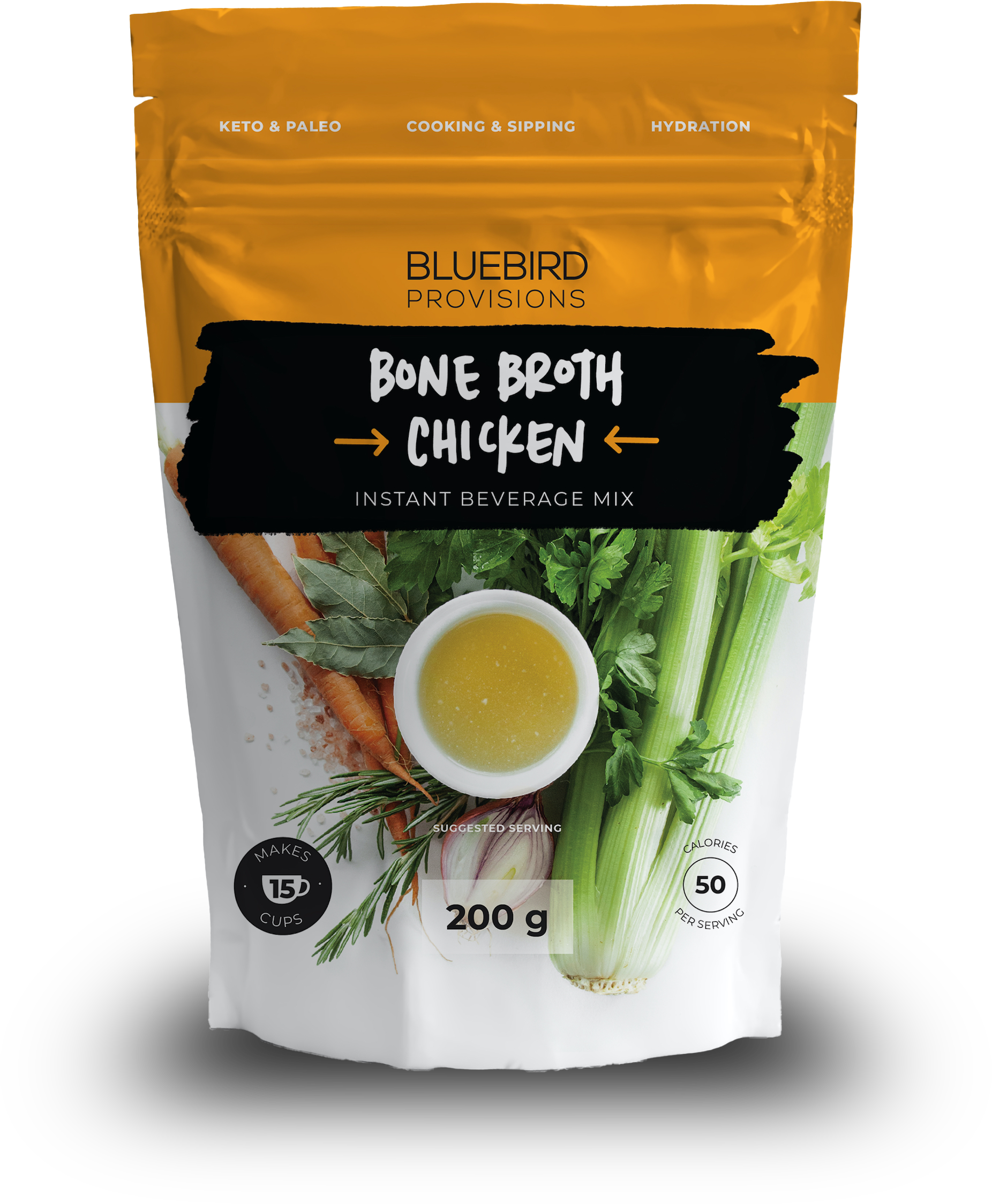
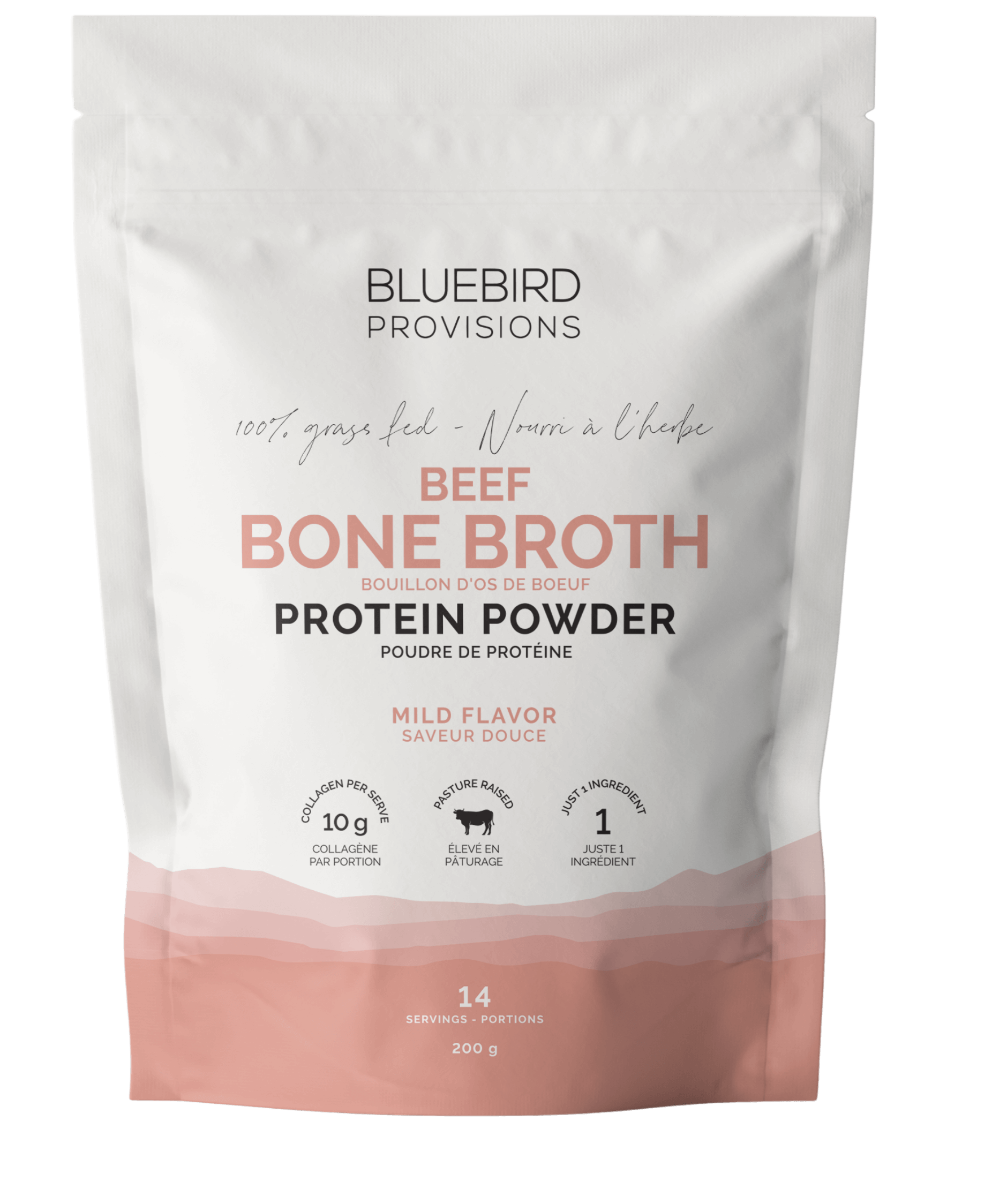

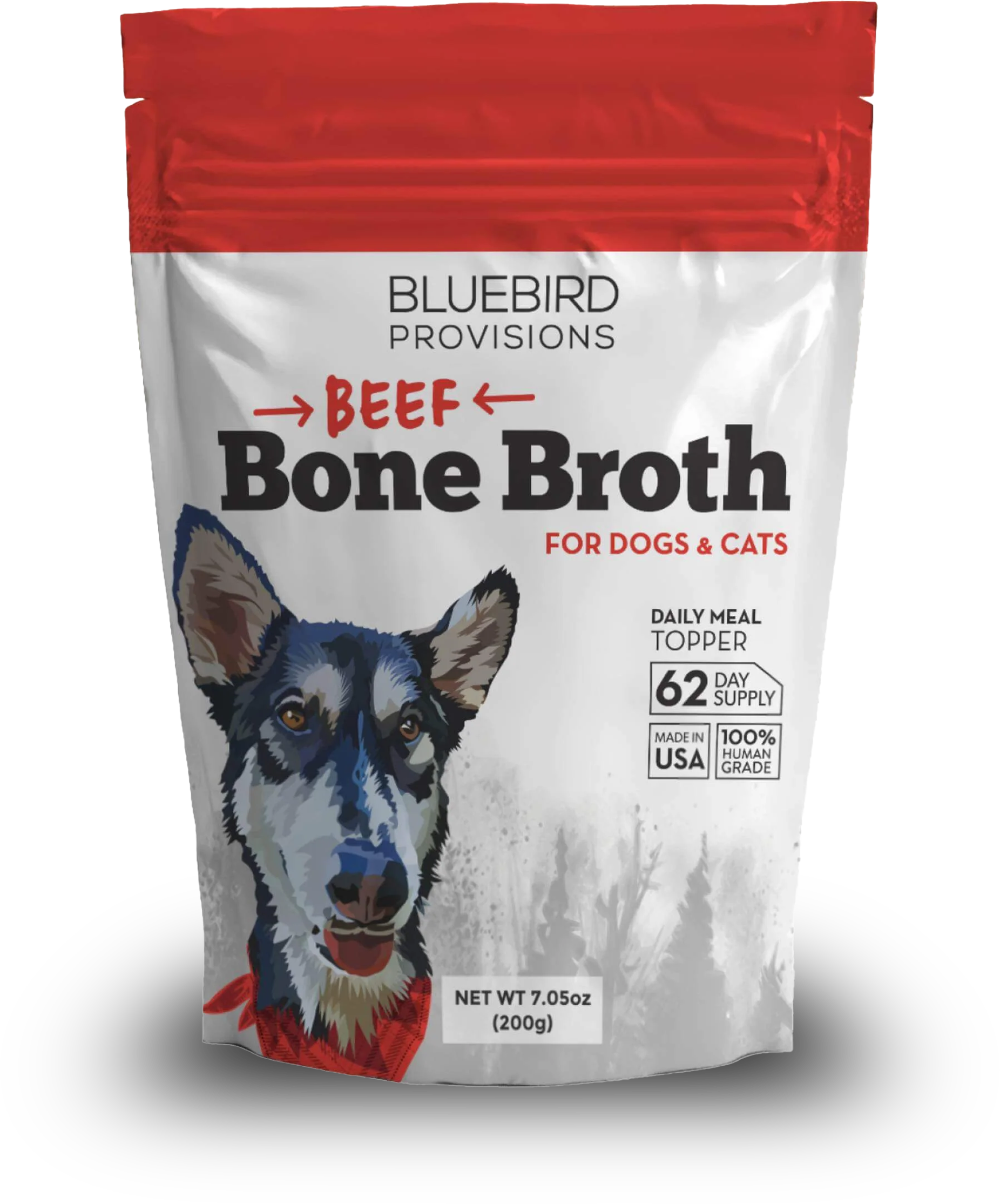

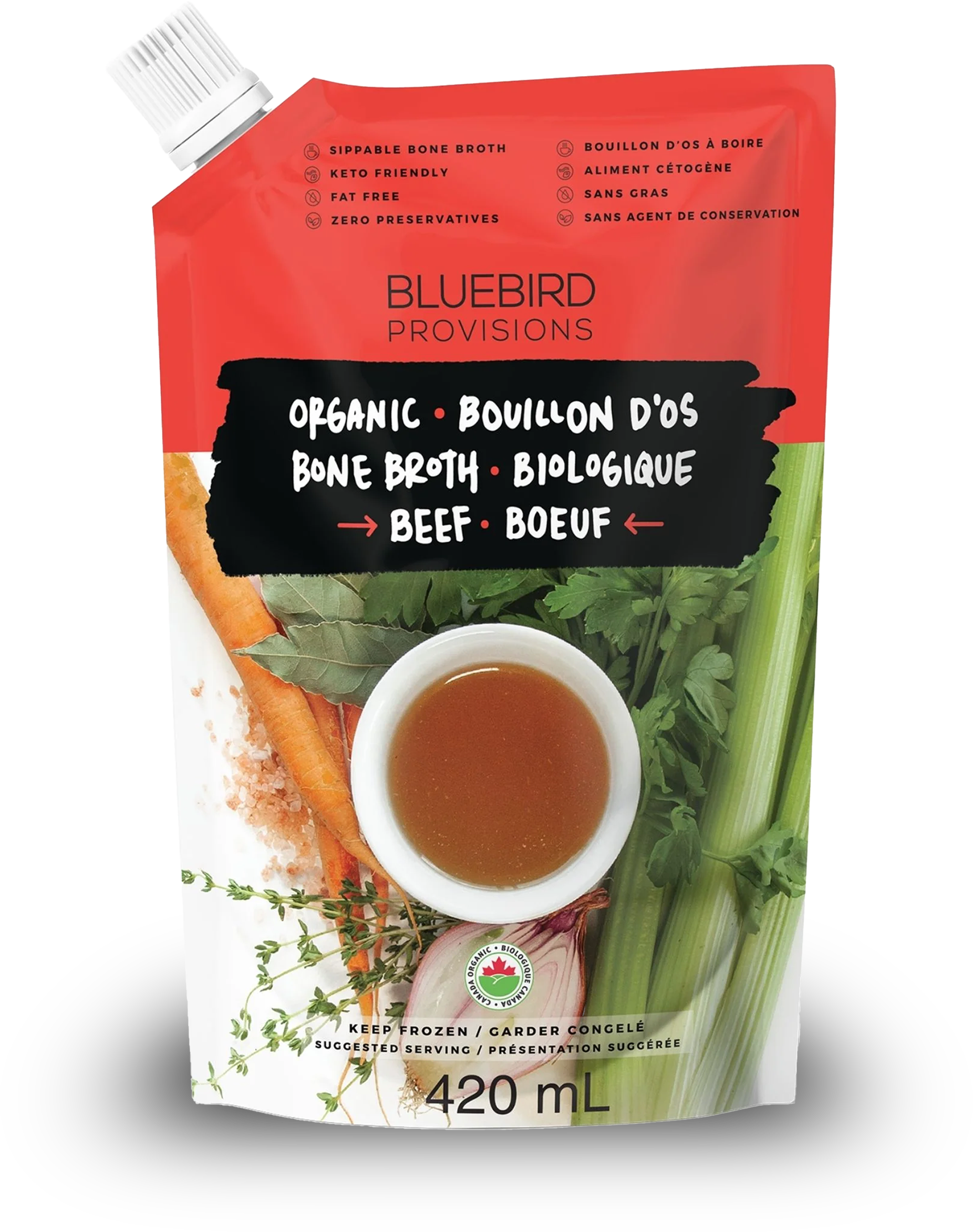


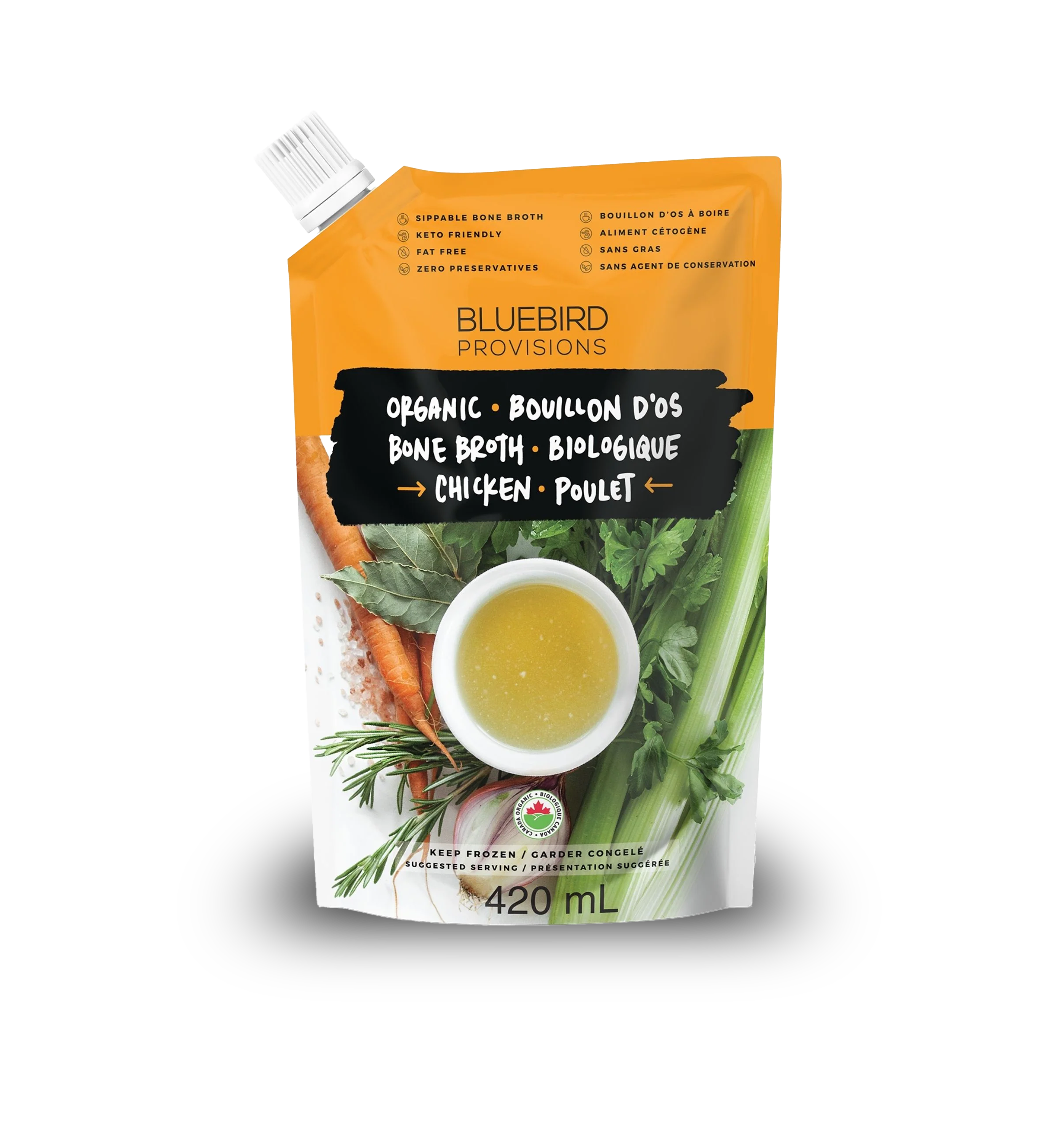
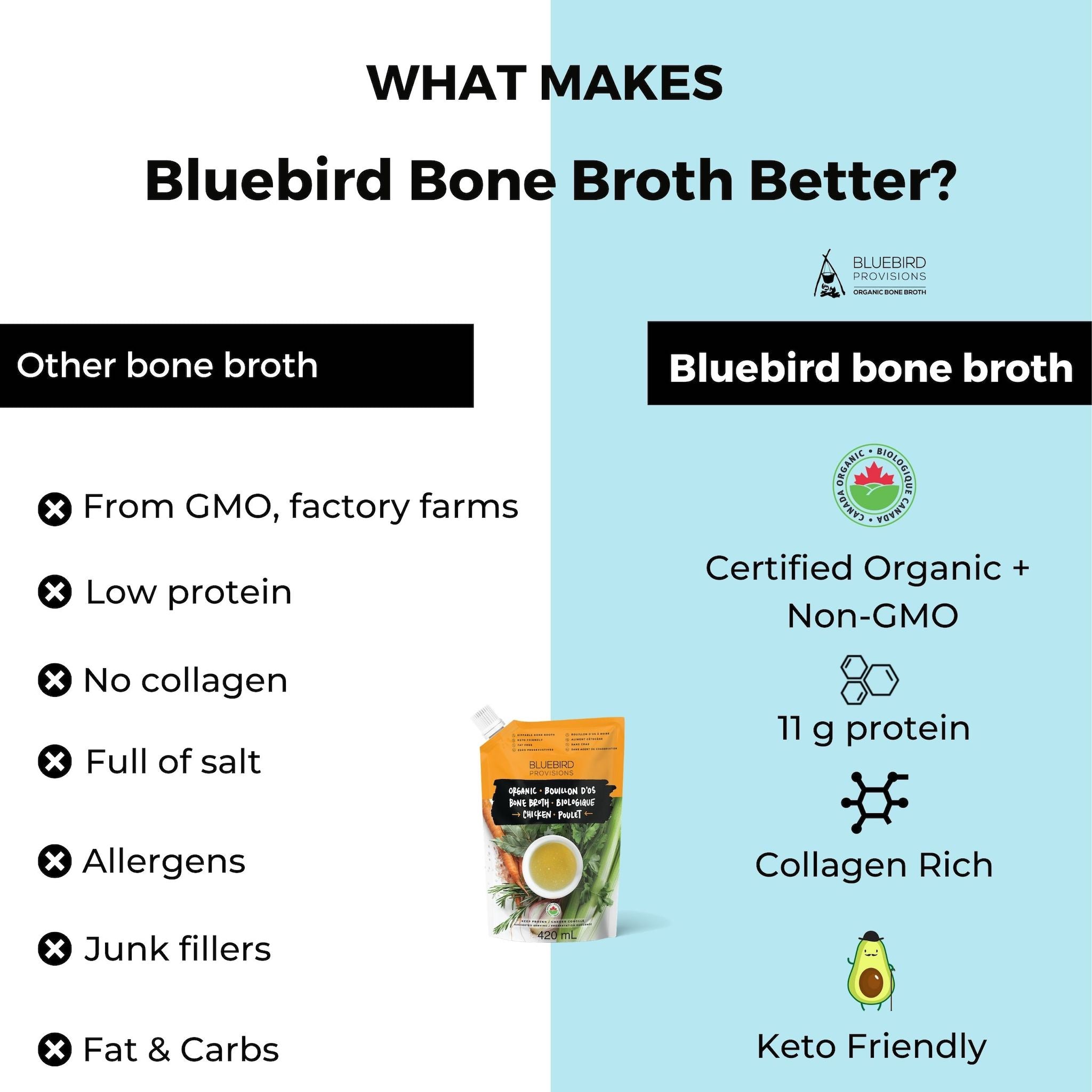
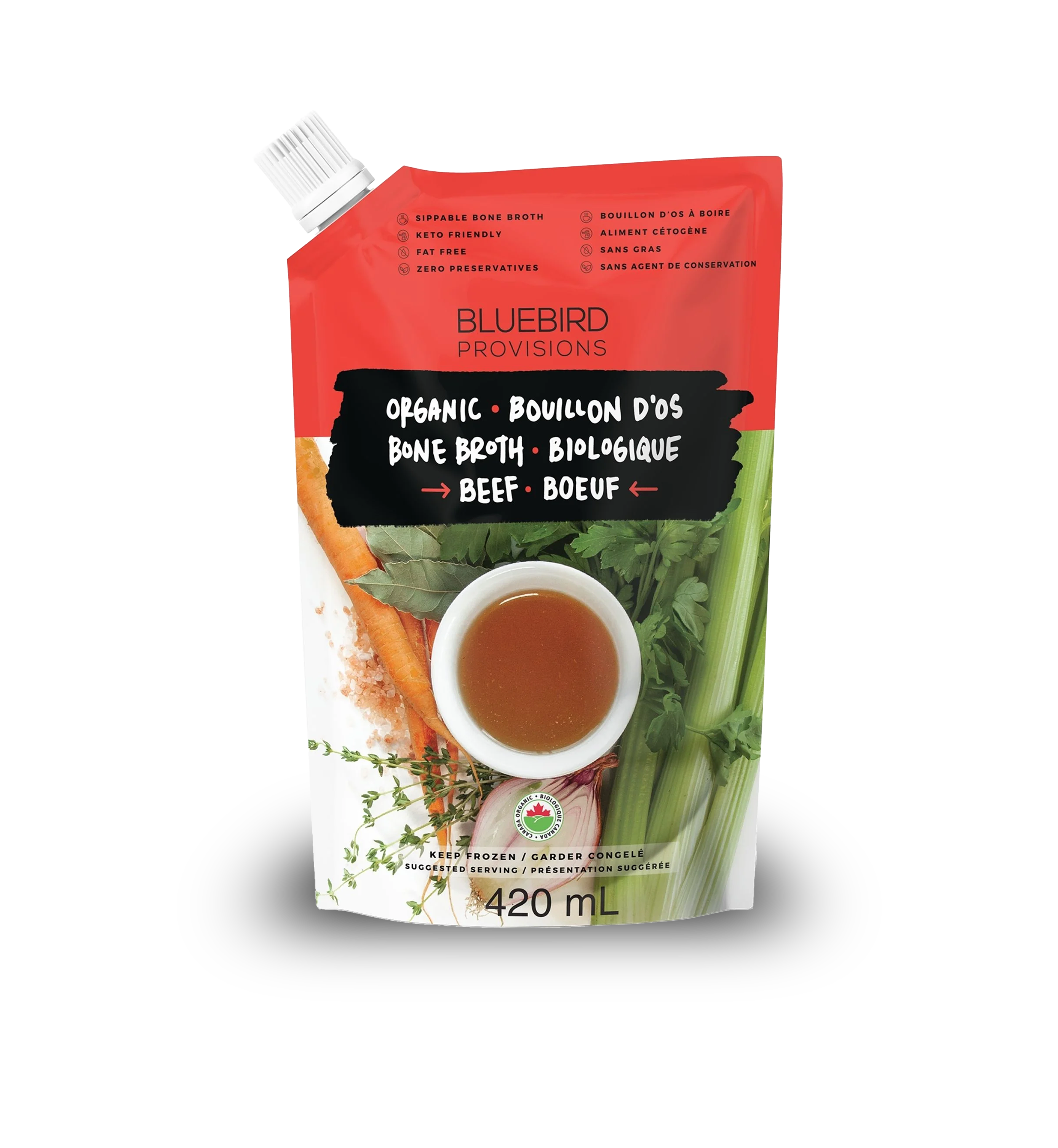
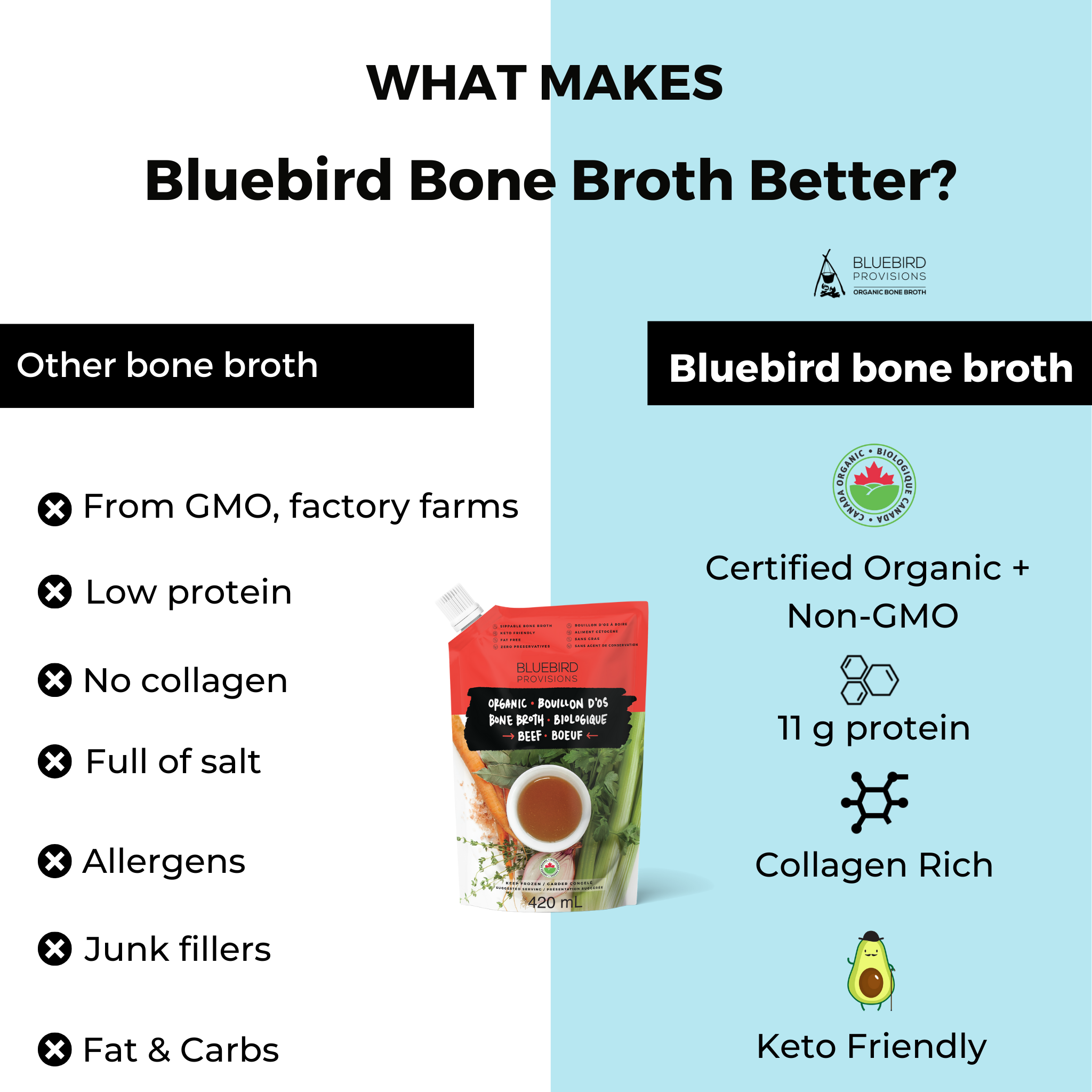
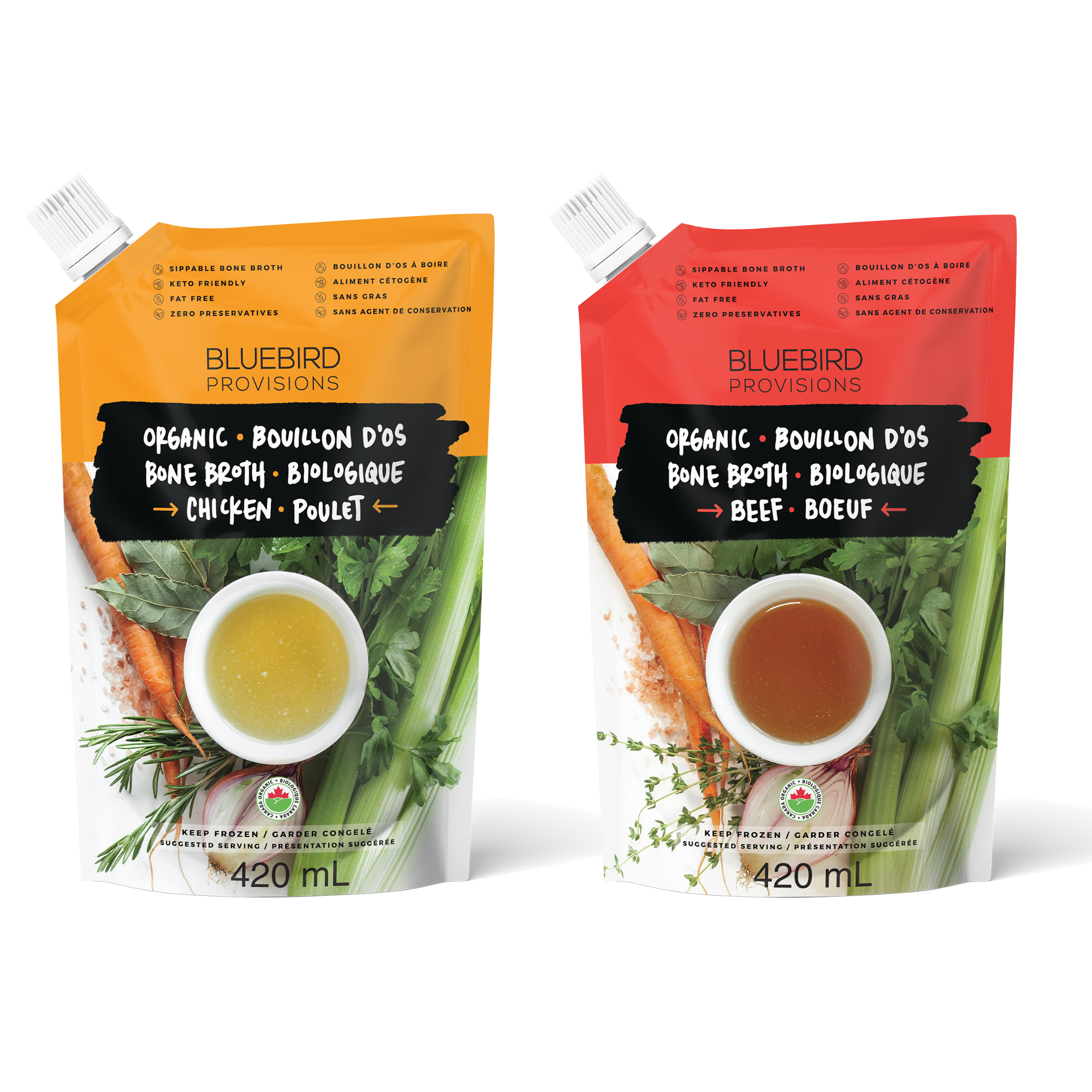

Leave a comment
This site is protected by hCaptcha and the hCaptcha Privacy Policy and Terms of Service apply.